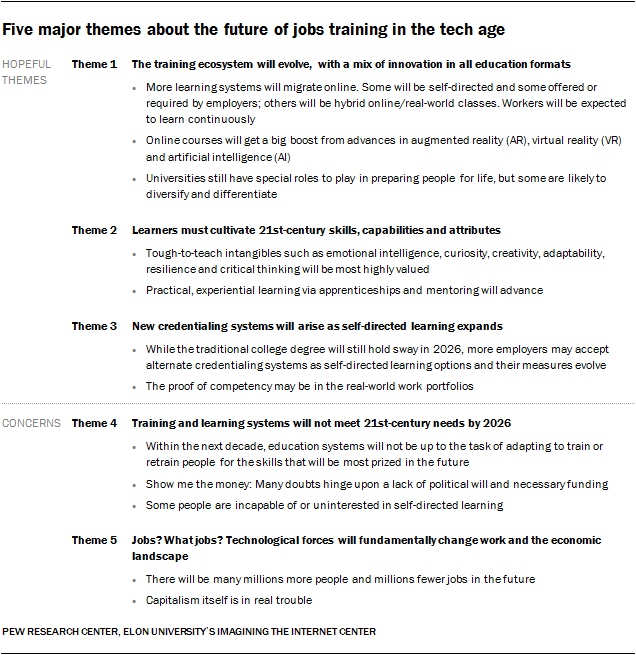
The changing world economy is altering the types of jobs that will be available in Canada, and experts say people need to start planning how they expect to earn a living.
Dave Redekopp, owner of Edmonton career consulting firm Life-Role Development Group Ltd., says the relationship between employers and employees is shifting, and workers must prepare for what’s ahead.
He made his comments in an interview as part of November’s Canada Career Month, which this year is looking at the future of employment in the country.
Here’s an edited, condensed version of what Redekopp had to say.
Q: What is the new economy?
A: Getting a full-time job with all the benefits is becoming less prevalent. It can be fantastic for some people and nerve-racking for others, because in the gig economy you’re constantly looking for work.
Q: How are the types of jobs changing?
A: We’re seeing more and more fairly specialized knowledge work … and growth also at the entry level, where we have people who aren’t necessarily highly educated doing delivery, working in service.
In the middle, the ability to get a job with an undergraduate degree, it’s still there, but we can see it’s fading a little bit. You need to get more specialized — an undergraduate degree plus something.
Q: What happened to the middle?
A: We outsource manufacturing to places like China and India, and down to Mexico. All the work that was in the middle just ended up being able to be farmed out more cheaply elsewhere.
In that economy, the edge goes to who has the knowledge to decide what we should be manufacturing or what kind of software should be designed … To keep the oilsands viable, what can be automated will be automated.
Q: How long before the future arrives?
A: We have been working at this or seeing these things happen for at least two decades. I think in another decade everything I have told you will become old news.
Q: What should people do?
A: Figure out what’s interesting. Don’t start by chasing the economy. Start by looking inward and saying, ‘I know I need to contribute to the world and someone is going to pay me. What’s the best way I can do that for me in terms of my values and (talents)?’
The provincial career site has the best information about jobs, training, salaries and trends.
Next, start to look outward to see what need could be filled (by your talents) … It’s really worth spending the time talking to people, reading as much as you can about what they do and getting a sense of what are the pathways to getting there.
If possible, get your hands dirty. See if you can follow them around for half a day or even an hour … If there’s a night course, take that and see what’s involved, but don’t quit your day job first.
source:-edmontonjourna











